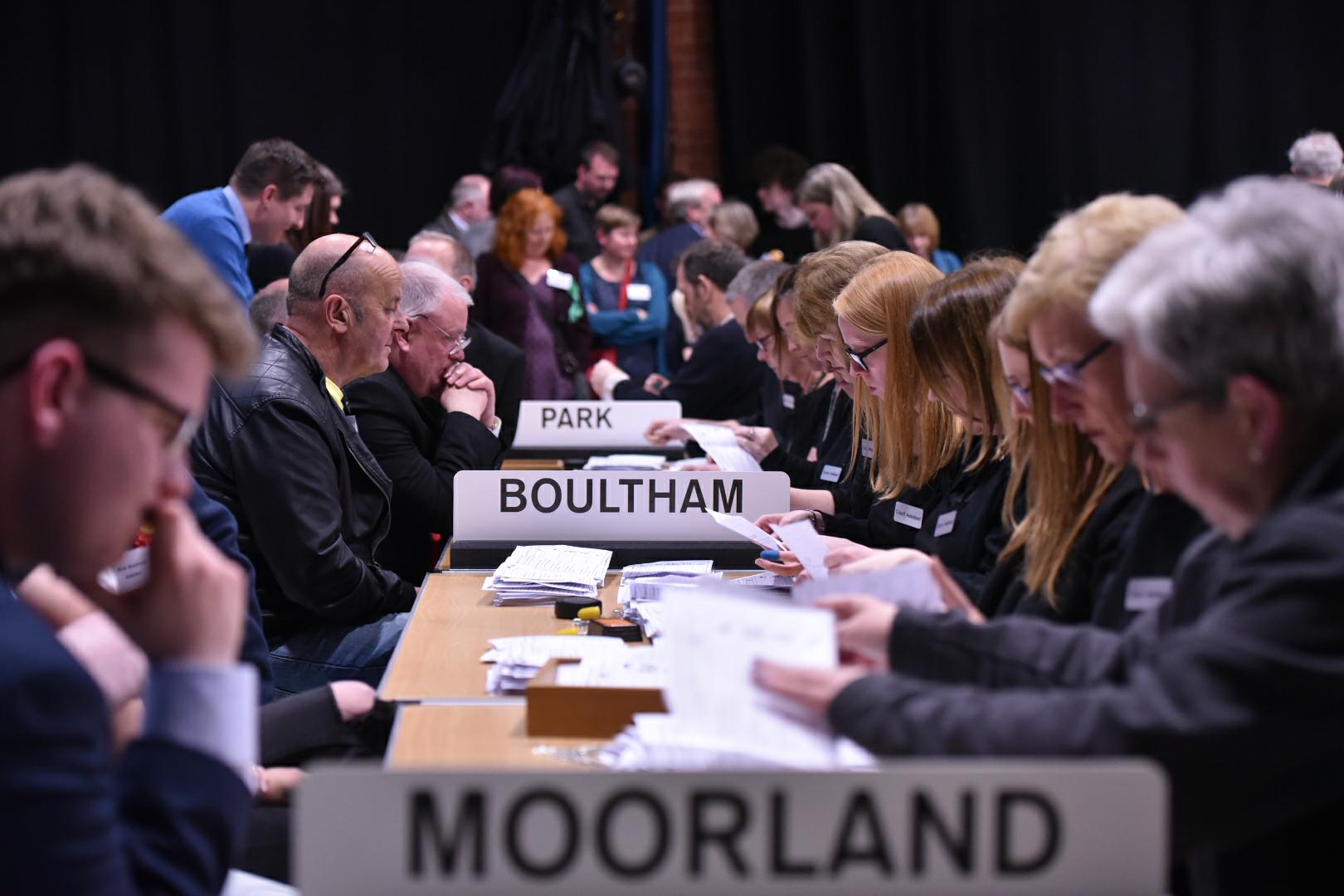In case some of you missed them, there were elections in some parts of England on May 3. Not that many people were affected but experts still insist on using the results to predict what might have been the result had a general election taken place instead.
Our own bellwether test took place in the City of Lincoln, when, as happens every three years out of four, a third of the local council’s 33 seats are up for grabs, while, in the other year, it’s the turn of the County Council. Since West Lindsey District Council a few years ago abandoned the system in favour of all out elections every four years, with the County Council election in between, Lincoln is the only place in the county to retain a system of almost perpetual elections.
I know we believe in democracy; but surely you can have too much of a good thing? A turnout of around 30% this year would seem to indicate that the answer to that particular question is affirmative. With only a few seats changing hands it’s still very much two party politics in the city, as in England as a whole. Here UKIP’s challenge largely petered out, while the Lib Dems and the Green Party, as happens quite regularly in Lincoln, in terms of seats really got nowhere, although certain areas of England witnessed something of a recovery as far as the former party was concerned.
We’re still dealing with two party politics
It grieves me as a former Lib Dem councillor that the local party seems incapable of learning from how we conducted ourselves in places like North Hykeham and Sleaford over several decades and are still to some extent doing in Gainsborough. In Hykeham, by championing local causes with regular newsletters we kept winning at County, District and Town Council.
Dealing with the Tories is a bit like gardening. You can keep the weeds at bay but the trouble with them is that, if you slacken your efforts for whatever reason, they just keep coming back!
As a relatively new party with only a small core vote, just putting up candidates every year, unless they are wearing blue and in some areas also red rosettes, without the year round spade work necessary for success just makes them likely candidates for ritual humiliation.
Given how little real power local councils now enjoy, you have to ask yourself if there is a point in standing for election. Well, I did it for over thirty years in the belief that I could actually change things and, indeed, there were a few occasions when I felt that my contribution and that of my colleagues did make a small difference. But change the world? No way!
That said, I reckon that, all things considered, Cllr Ric Metcalfe and his Labour colleagues are not doing that bad a job of trying to run the city. It’s just a pity that there is so little they can actually and independently run. Until central government is prepared to loosen its apron strings and return some of the powers it has taken away from local government over many decades Lincoln City Councillors, like their colleagues at county and district, are largely just shadow boxing or acting as a human shield by being forced by statute to do the government’s dirty work for them.
Local government reform is needed more than ever
Mind you, for that to happen, Local Government has got to be prepared to put its own house in order. For Lincolnshire that has got to mean ‘goodbye’ to a County Council and seven District Councils, which would probably include Lincoln City, and ‘hello’ to anything up to three unitary authorities, with town and parish councils being offered enhanced powers.
For the voters that has also got to mean a reform of local government finance and, yes, it might mean ALL of us paying a little more for the services, such as health and social care, that we claim that we want. How we pay for them is another matter; but clearly the current Council Tax is no longer fit for purpose.
And please don’t raise that red herring of overpaid councillors etc. Councillor allowances represent only a tiny fraction of what councils need to spend, especially as, in a few years time, central government grants are predicted to be down to zero. I certainly wouldn’t expect them to do the job for nothing.
Who really knows about the big picture?
So, what do the results, which appeared to herald the return if not to 3 then at least to 2.5 party politics in England tell us? Frankly, not a great deal. Tories and Labour are neck and neck nationally on around 35% of the popular vote on a turnout of under 40%. Is that any mandate to govern alone? The only party to be caned was UKIP, small reward, in some ways, as, without UKIP, we wouldn’t be facing Brexit (which I know the majority of people around here support); but predictable for a party that was in reality a ‘one trick pony’.
It’s hard to predict whether these elections are a bellwether for the next general election, which could happen sooner rather than later if Brexit negotiations run into the buffers. I have a strong feeling that the Labour Party may have peaked too soon while the Tories, despite a less than impressive performance in many areas, appear to many people to be the party that is the least worst opinion.
However, many people wrote Labour off after last year’s local elections, and look what happened a month later. They say that the party now has over 500,000 members; but half a million votes alone won’t win you anything. You need to win over those who have experienced socialism at first hand, namely those of us who can remember the 1970s and are more likely to vote than those born during and after the Thatcher years.
As far as Lincolnshire is concerned, with the notable exception of Lincoln, the county’s remaining constituencies will almost certainly return Tory MPs. Only a revolution will change that. I still remember the words of Douglas Hogg in his acceptance speech at Sleaford Sports Centre in the early morning of Friday, May 2 1997, when I was the Lib Dem candidate, who finished a distant third behind him and Labour’s Sean Harriss, who ran him quite close, in the newly created Sleaford and North Hykeham seat. With a wry smile on his face he turned to his supporters and said; “Tories always win in the end.” They certainly appear to do so around here.
That said, what I think the public is crying out for is some kind of consensus from all political parties about where our country is heading. You see, nobody really has all the answers, despite what they try to tell you.
One thing is clear. In or out of Europe, with or without a customs deal or a soft or hard border between the two Irelands, and national institutions like the NHS struggling to cope with increasing demands brought on largely by an ever ageing population and with Theresa, Jeremy, Jacob or Boris (perhaps not Vince) as PM, there is a rough road ahead for us all, whose navigation requires compromises and sacrifices regardless of our income or status. The sooner we accept that and stop looking round for someone else to blame the better.
John was a councillor for thirty years, finally retiring in 2017. A schoolteacher by profession, he served on the North Hykeham Town Council (1987-2011), the North Kesteven District Council (1987-1999, 2001-2007) and the Lincolnshire County Council (2001-2017). He was also a County Council member of the former Lincolnshire Police Authority for eight years until standing down in 2009. In 1997 he was the Lib Dem Parliamentary candidate for Sleaford and North Hykeham. He is currently not a member of any political party.







